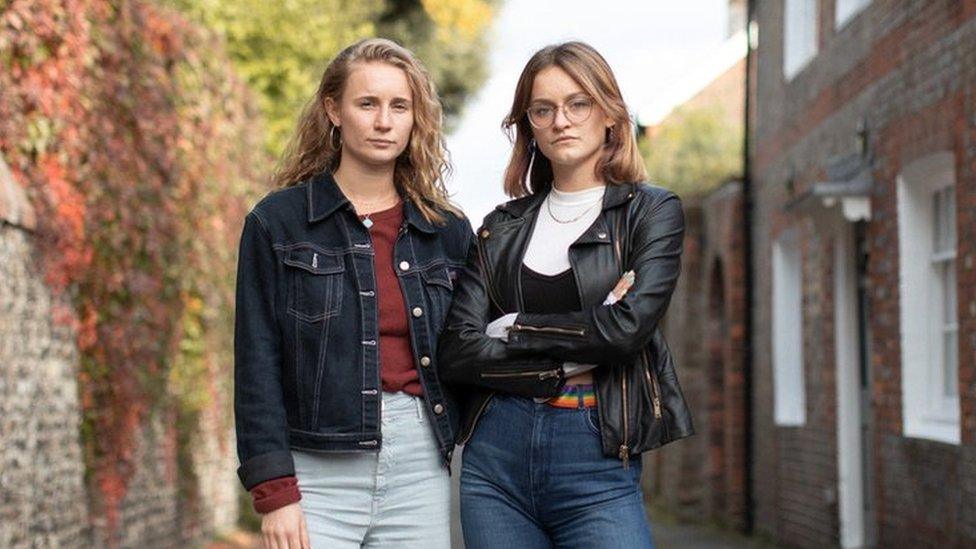Street harassment law being blocked, adviser Nimco Ali says
- Published
Nimco Ali: Street harassment should be a crime
The government's independent adviser on tackling violence against women and girls has suggested her calls for street harassment to be made a crime are being blocked.
Nimco Ali, a friend of Boris and Carrie Johnson, told the BBC's Political Thinking with Nick Robinson podcast that her plan had endured "pushback".
She also hinted the prime minister had not fully supported it.
But No 10 insisted tackling violence against women was a top priority.
Asked if an offence of street harassment was still being considered, the Downing Street spokesman said: "We will continue to look at where there may be gaps and how a specific offence could address those."
During the interview, Ms Ali also described the "abuse" the prime minister's wife receives as "horrific" and "incredibly painful".
Mrs Johnson has reportedly been nicknamed, external Lady Macbeth and Princess Nut Nut. She has also been accused of having undue influence over her husband.
Asked about criticism, Ms Ali said: "There's a lot of insecure men around in this world."
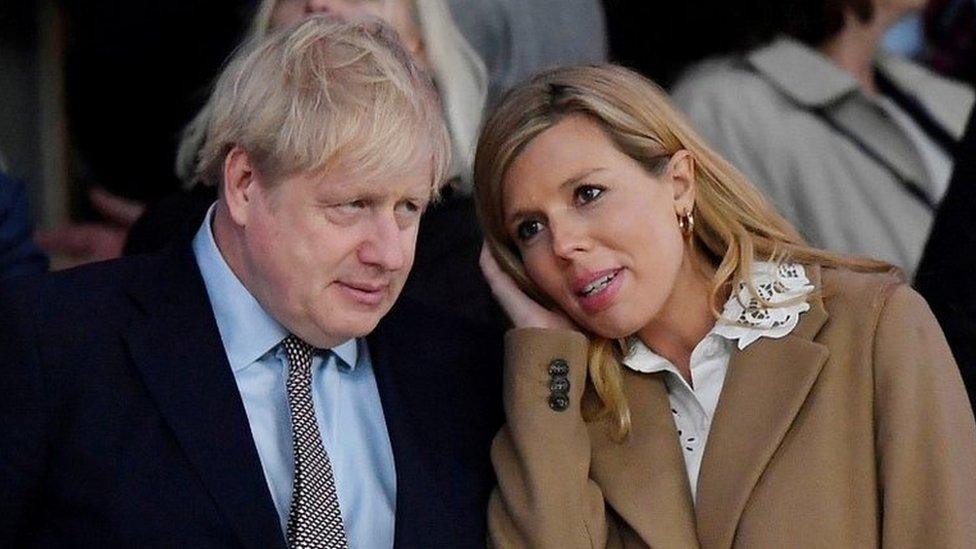
Carrie Johnson and the prime minister married in 2021
Ms Ali, who was appointed by Home Secretary Priti Patel in 2020, is pushing for street harassment - such as wolf-whistling, catcalling, staring persistently or telling a stranger to smile - to be made a crime, with on-the-spot fines for offenders.
She said Ms Patel was "very much behind" her campaign but "then you meet other people saying no".
"It's been frustrating and it's been disappointing," she added, claiming she had received "pushback" from other parts of government.
Asked if this had come from the prime minister's advisers, she replied that the source had been "a lot closer than that", adding people would be able to interpret "my silence".
Ms Ali said failing to make street harassment a crime meant "that we are actually corroding society and we are allowing young women to be subjected to lived experiences which are going to have a massive detriment to their health on a day-to-day basis".
A survey by pollsters YouGov, external for the BBC, published in March, suggested two-thirds of women did not feel safe walking alone at night, at least some of the time.
The murder of Sarah Everard, who was abducted while walking home in south London last year, has also increased concerns over women's safety and attitudes towards women.
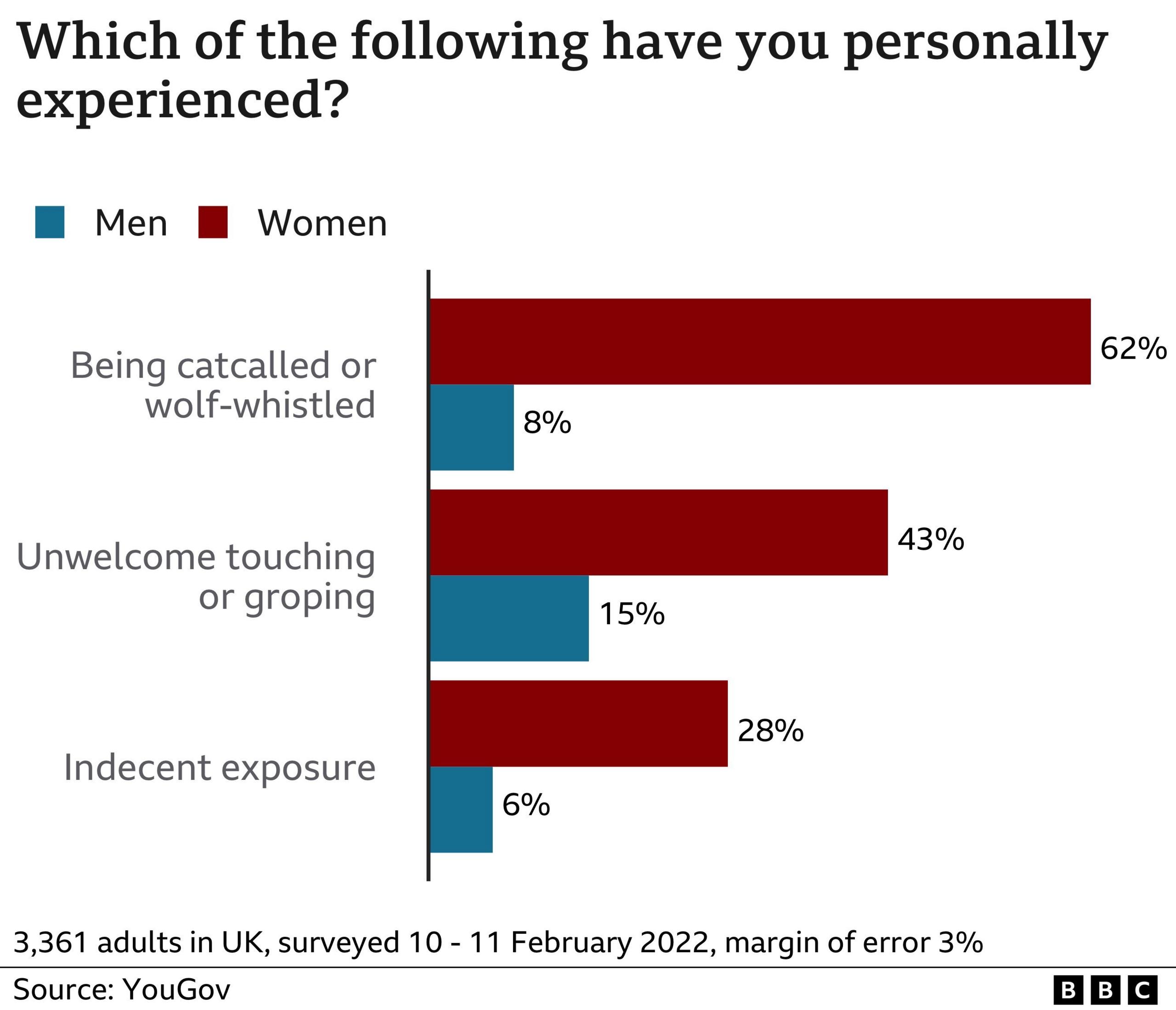
She also said the UK government was "falling behind on being a global leader" on women's rights.
When she was appointed as an adviser, Ms Ali said more needed to be done to curb violence against women.
She helped Ms Patel draw up a strategy, published in July 2021, external, to "ensure women and girls are safe everywhere".
Nick Robinson asked Ms Ali whether the "energy" to defend women and girls had dissipated.
"No, it hasn't gone," she said. "Just because it's not in the mainstream media at the moment, it doesn't mean that the home secretary and also the minister for women's safety, Rachel Maclean, are not committed to this."
A government spokesperson said tackling violence against women and girls remained one of its "top priorities".
"Since July we have delivered on our commitments, including the first ever national police lead for violence against women and girls, implementing the landmark Domestic Abuse Act and the pilot Safety of Women at Night Fund, along with a further £25m for Safer Streets projects.
"In March the prime minister launched a new £20m business partnership to continue to improve girls' access to education in developing countries, and the UK has been clear it supports women's reproductive rights globally, including the right to access safe and legal abortion."

'I LEFT THREE KIDS AND A WIFE I ADORE': Ukrainian tennis player who returned to defend his country
'I EARN MORE THAN MY FRIENDS WHO WENT TO UNI': Meet the young bricklayers building their lives

Related topics
- Published30 April 2022
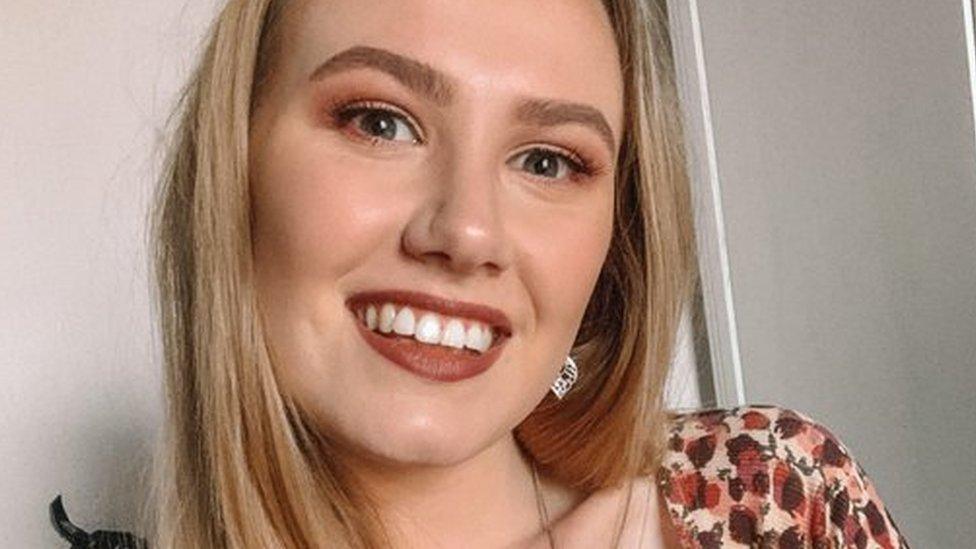
- Published8 March 2022
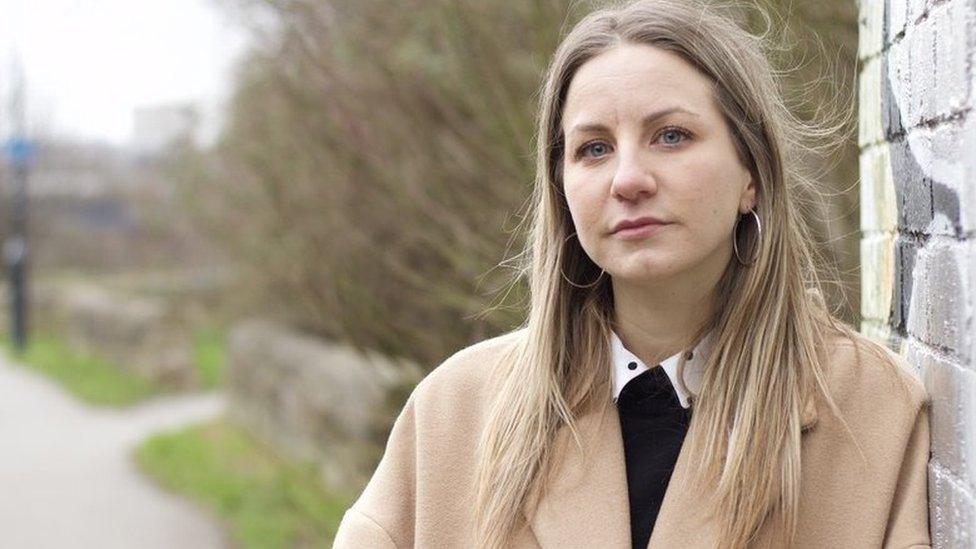
- Published2 December 2021
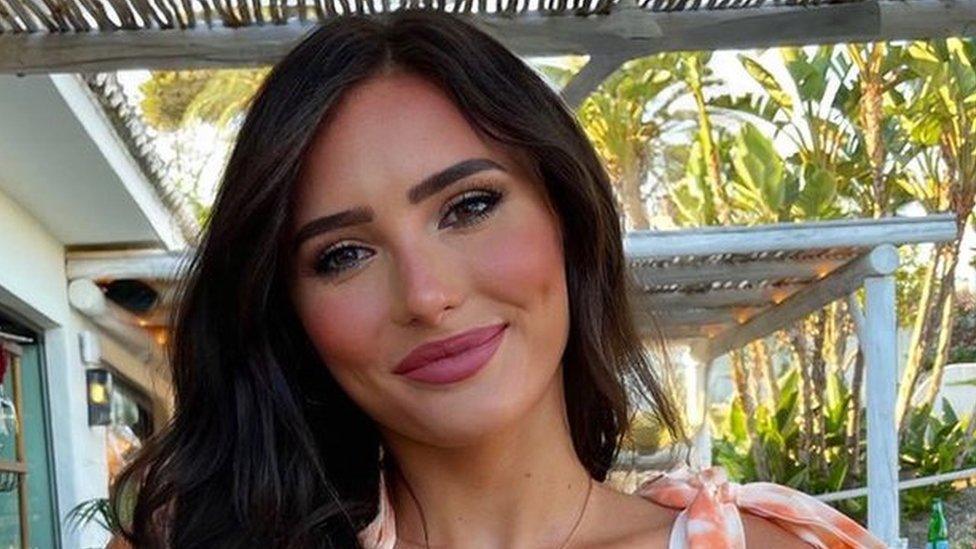
- Published12 March 2021
